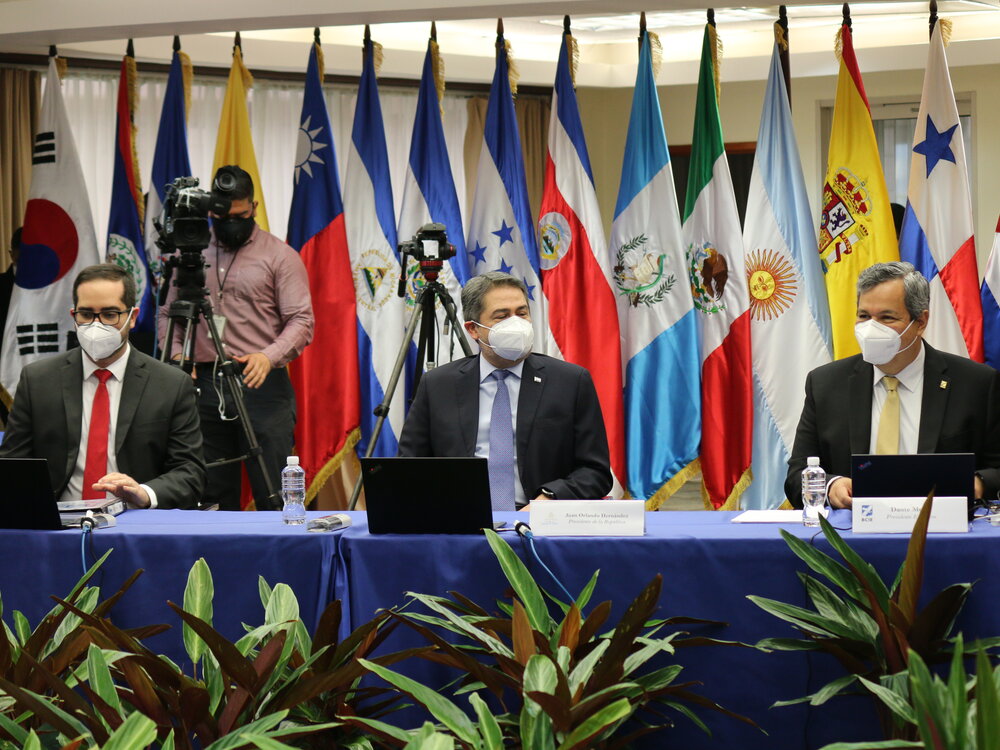CABEI: Multilateral Development Bank relevant for the Central American region

During the five-year period of 2015-2019, CABEI approved record operations of US$10,969.3 million, exceeding 21.9 percent of what was programmed for that period.
Tegucigalpa, September 3rd, 2020 - Today, the Central American Bank for Economic Integration (CABEI) inaugurated the first virtual ceremony of the Board of Governors in its 60 years of existence.
The opening ceremony was presided over by the Executive President of CABEI, Dr. Dante Mossi; the President of the Republic of Honduras, Attorney Juan Orlando Hernandez, and the Secretary in the Honduran Finance Office and Governor of Honduras in the presence of CABEI, Attorney Marco Midence.
Review of the past five years
On this occasion, President Mossi reviewed the institutional exercise of the five-year period of 2015-2019, during which time CABEI made significant progress in its role as a strategic ally: the development interventions approved at the end of 2019 are estimated at US$10,969.3 million, exceeding by 21.9% what was programmed for the five-year period (US$8,765.0 million), of which 73.9% corresponds to the five founding countries and 26.1% to the rest of the partner countries. The loan portfolio experienced a growth of 35.8% in the period, reaching US$7,704.3 million, deepening the diversification process in the countries.
In the area of integration, progress was made in approving projects of regional significance, including the credit for the Second Circuit of the Electrical Interconnection System for the Countries of Central America (SIEPAC), strengthening the capacity of the regional electrical sector.
CABEI's commitment to economic integration, economic and social development consolidates its business model and raises its financial and equity position. In 2019, CABEI reached the best risk in Latin America with ratings of AA and Aa3 granted by the risk rating agencies, registering six improvements, since 2015.
Among the factors that contributed to the increase in the rating are the incorporation of new partners to the institutional structure: the Republic of Korea in 2019, the Republic of Cuba in 2018, and Belize in 2016; which allowed for an average annual increase in assets of 7.8 percent.
Additionally, the average annual portfolio growth has been 6.3 percent, and the generation of profits of US$150.0 million per year on average since 2015; exceeding the goals established in the annual operating plans, with the exception of 2018.




